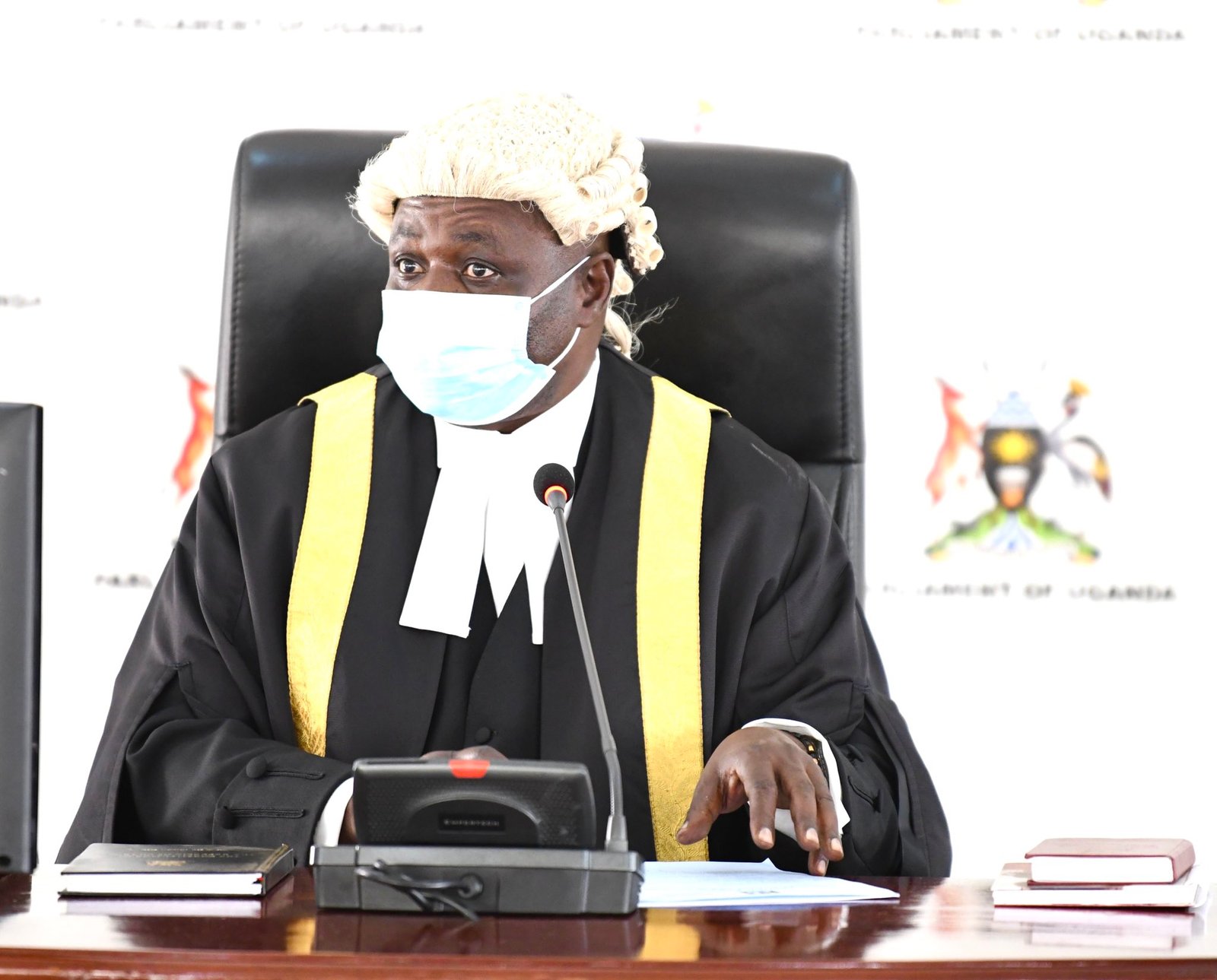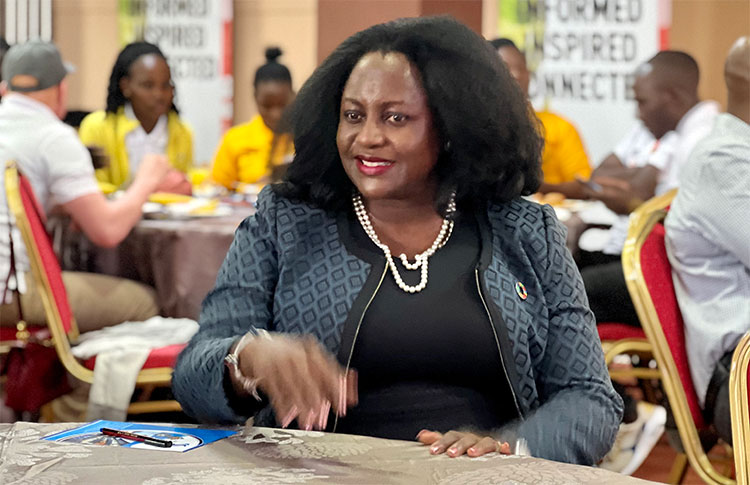Members of the Buganda kingdom’s council, the Lukiiko, have voiced their dissatisfaction concerning suspicious meetings and the acceptance of gifts by a section of clan leaders from President Yoweri Museveni.
In May this year, the clan heads known as Abataka met with President Museveni at State House Entebbe through the coordination of ICT Minister Nabossa Ssebugwawo.
A statement issued by the State House indicated that the President’s intention was to reestablish a connection with the Bataka, three decades after the kingdom’s restoration, subsequent to its dissolution by a previous regime.
It was reported that during the inauguration of the 31st Lukiiko session by Kabaka Ronald Mutebi, last week, a section of clan heads participated in further meetings with central government officials, where discussions revolved around matters of personal gratification.
The subject was extensively deliberated upon during Monday’s afternoon session of the Lukiiko. Henry Mubiru Kasakya, the representative of Ssuubi lya Buganda in the Lukiiko presented the issue revealing that the discussions involving the clan leaders predominantly centered around securing valuable land allocations and organizing funds for its advancement.
These conversations also involved plans for setting up a centralized office to serve all clans.
In the Buganda system, each of the Bataka assumes leadership over one of the 52 clans. Collectively, they form a council of clan heads, holding significant roles within the administrative structure of the Buganda Kingdom.
Beyond this, they shoulder the duty of representing and providing direction to their respective clans on matters spanning the cultural, social, and at times, political spheres of the kingdom.
Their responsibilities include safeguarding cultural traditions, facilitating conflict resolution, and championing the interests of their clans within the larger framework of the Buganda Kingdom’s organization.
During the Lukiiko, Kasakya pondered whether the meetings of the clan heads with President Museveni had been brought to the attention of the Katikiro, given that the council of heads holds a pivotal role within the kingdom’s structure.
He further stated that if these leaders were involved in questionable dealings, it could potentially have repercussions for the kingdom in various ways.
It should be noted that since the restoration of the Buganda kingdom, the Mengo establishment has maintained a fluctuating relationship with President Museveni.
Both sides have navigated this relationship with a sense of ambivalence, which journalist Derrick Kiyonga aptly described as a “love-hate” dynamic in his article in the Daily Monitor for the 30th anniversary.
He noted that this complex relationship lacked a true convergence of perspectives, particularly in regard to the fluid concept of power.
Reacting to the issue, Katikiro Charles Peter Mayiga expressed that the kingdom was unaware of any arrangements involving the mentioned clan heads with either the president as an individual or the central government.
He further highlighted that even the Speaker of the Council of Clan Heads had not been informed about these developments.
Mayiga further emphasized that he was uncertain whether the mentioned building would be privately owned or subject to a different arrangement.
He also raised a significant point by highlighting that, traditionally in Buganda, all clan heads have their own respective courts, a system that has been in place for countless years.
He questioned whether this established arrangement would be altered as the clan heads acquired what could be considered headquarters of some kind.
Mayiga further emphasized the potential harm that could arise from such uncoordinated arrangements, suggesting that they might negatively impact the kingdom.
He acknowledged that while it’s not inherently problematic for the president to assist the clan heads, it’s crucial to adhere to established structures.
Mayiga mentioned that a meeting would soon take place to address and organize the current arrangement. He emphasized that he wouldn’t permit divisions to emerge within Buganda, viewing the actions of select clan heads as potentially divisive.
Earlier, during his address, Mayiga had conveyed to the Lukiiko that the Battaka is under the direct authority of the Kabaka, who possesses the power to establish, dissolve clans, and appoint clan heads.
He noted that no clan holds independent authority apart from what is delegated to them by the Kabaka. Mayiga strongly emphasized that all matters concerning the clans and their affairs are under the jurisdiction of the Kabaka alone, and no other individual.
He further stated that anyone who opposes the Kabaka’s authority (sabakata) could face being ostracized within Buganda.
Speaking with the Buganda kingdom media on the matter, former premier Dan Muliika remarked that the clan heads’ recent meeting with the president and other central government officials was a significant error.
Muliika emphasized that it was a mistake for them to engage in such discussions without first notifying the office of the Katikiro or even the Kabaka himself.
“After the war, the president wanted to send Abataka to Japan. We refused the proposition, noting that the president cannot undertake any actions with the clan leaders unless it’s done through the Kabaka or Katikiro.
“We aim to make it clear to the clan leaders that they cannot hold conversations with individuals external to the kingdom’s system without adhering to the established structures,” he said.
Muliika further emphasized the importance of continuously educating the clan heads about their responsibilities and boundaries to ensure they do not exceed their roles.
The Bataka saga comes barely a week after the Kabaka has issued a stern admonition to leaders within his kingdom calling them to shun hypocrisy and embrace courage in their service, focusing on providing sincere and authentic assistance to the people.
However, for the bataka to work against the Kabaka is not unprecedented in Buganda’s history. In fact, during the early centuries, the kings held power subject to the influence of the clan heads. Over time, the kings gradually consolidated more centralized authority over the kingdom.
In the era of Kabaka Bemba’s reign, Abataka staged a revolt in response to the forceful assertion of his authority over the clans, which at that time operated with a certain degree of autonomy.
Historical records reveal that a significant instigator of this uprising was an individual named Mukiibi, head of the Lugave clan.
He effectively rallied various clans against the king’s actions during that period. In more recent history, there are documented instances during the reigns of Kabaka Chwa and Muteesa II, where several clan heads opposed or took actions against the reigning king.
















